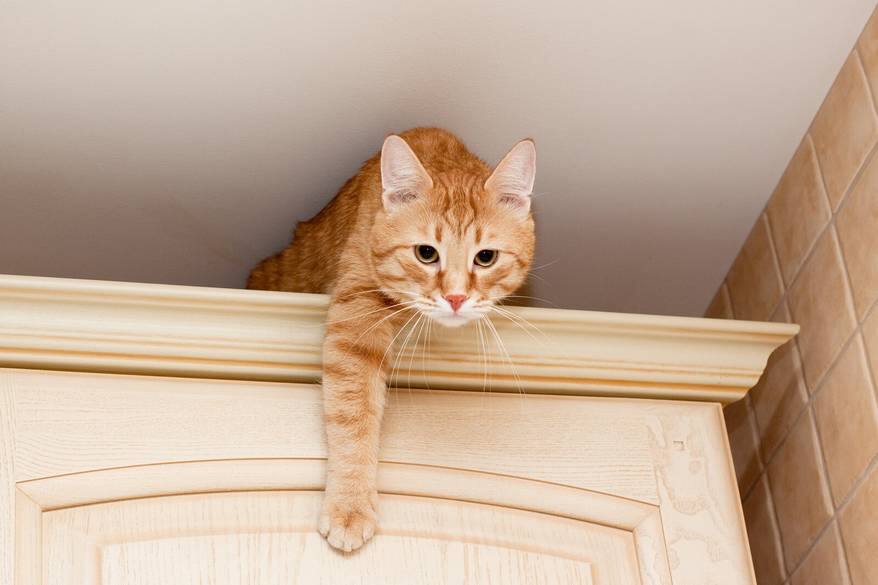
-
Find the right food for your pet
Take this quiz to see which food may be the best for your furry friend.
Find the right food for your pet
Take this quiz to see which food may be the best for your furry friend.
Featured products
 Adult 7+ No Corn, Wheat, Soy Chicken & Brown Rice Dog Food
Adult 7+ No Corn, Wheat, Soy Chicken & Brown Rice Dog FoodSupports energy level and beautiful coat in mature dogs
Shop Now Adult 7+ Perfect Digestion Chicken, Whole Oats & Brown Rice Recipe Dog Food
Adult 7+ Perfect Digestion Chicken, Whole Oats & Brown Rice Recipe Dog FoodScience Diet's breakthrough nutrition supports ultimate digestive well-being & healthy microbiome for dogs age 7+
Shop Now Adult Perfect Weight & Joint Support Chicken Recipe Dry Dog Food
Adult Perfect Weight & Joint Support Chicken Recipe Dry Dog FoodThis weight management and mobility support dog food was created with Hill’s unique understanding of the biology of overweight dogs.
Shop NowFeatured products
 Adult Savory Chicken Entrée Cat Food
Adult Savory Chicken Entrée Cat FoodPrecisely balanced nutrition with the delicious taste of savory minced chicken to help fuel the energy needs of cats during the prime of their life
Shop Now Adult Perfect Digestion Chicken, Barley & Whole Oats Recipe Cat Food
Adult Perfect Digestion Chicken, Barley & Whole Oats Recipe Cat FoodScience Diet's breakthrough nutrition supports ultimate digestive well-being & healthy microbiome
Shop Now Perfect Weight Salmon & Vegetable Canned Cat Food
Perfect Weight Salmon & Vegetable Canned Cat FoodOver 70% of cats lost weight within 10 weeks when fed this nutrition
Shop Now -
Dog
- Dog Tips & Articles
-
Health Category
- Weight
- Food & Environmental Sensitivities
- Urinary
- Digestive
- Joint
- Kidney
-
Life Stage
- Puppy Nutrition
- Adult Nutrition
- Senior Nutrition
Cat
- Cat Tips & Articles
-
Health Category
- Weight
- Skin & Food Sensitivities
- Urinary
- Digestive
- Kidney
-
Life Stage
- Kitten Nutrition
- Adult Nutrition
Featured articles
 Pet Food Storage Tips
Pet Food Storage TipsDiscover how and where to store your dry, as well as canned, dog and cat food. Learn how to find the "best before" dates on all Hill's pet food packaging.
Read More The Incredible Science Behind Your Pet's Microbiome
The Incredible Science Behind Your Pet's MicrobiomeLearn what a pet's microbiome is, how it contributes to your pet's gut & overall health, and why nutrition is important in maintaining healthy microbiomes.
Read More Water
WaterDiscover why water is the most important nutrient for your dog or cat to live a healthy life. Find out how much water your pet should consume each day.
Read More -
Find the right food for your pet
Find the right food for your pet


In a cat's world, nothing is off limits: the inside of boxes, underneath a bed, on top of your keyboard. It's all fair game to a cat that wants to play, rest, hide, or is just plain curious.
That cat privilege extends—in their mind—to perches on the top of your counters, the upper reaches of a bookshelf, and even the top of the refrigerator. After all, cat jumping skills are top-notch. Cats can easily exceed altitudes six times their height. A study in the Journal of Experimental Biology reports that cats are superior jumpers because of the limb length and muscle mass of their back legs. Cats start a jump in a very deep crouch, then lift their front legs before "an explosive extension" of their back legs.
While there is no argument that a cat's jumping ability is impressive, it can also be annoying (and dangerous, as Vetstreet notes cats don't always land on their feet) to have cats regularly leaping to spots in your home that are high above their heads.
How can pet parents keep cats off furniture, shelves, counters, and anywhere else in the home where they don't belong?
Clean off Shelves
Cats are naturally curious. A pen, a set of keys, or a fragile knick-knack can catch their attention and tempt them to jump up to explore this "toy" that has been left for them to find. By keeping shelves clear of clutter, you can also lessen your cat's interest in exploring places you don't want them to go. This can also be beneficial to you as cats are known for knocking things off shelves, and unfortunately they aren't good at handling a broom and dustpan to clean up the mess after themselves.

Keep Food off Kitchen Counters
A cat's sense of smell is much better than yours, so if they smell something tasty, they are likely to jump up to try to sneak a nibble. That can be dangerous for them, depending on what the food is. By keeping counters clear of food and crumbs, you'll discourage your kitty from leaping onto your kitchen counters. If you find that your cat is intensely curious about what you're making for dinner—and won't stay off the counters while you're preparing it—simply shut your cat in another room until the kitchen is clean.
Shut the Blinds
Cats like to jump to window sills to take in the outdoor view. If there's a windowsill that you don't want your cat to use, simply shut the blinds to take away the kitty TV. But make sure you give your cat at least one spot to look outside, as cats enjoy watching the world go by.


Tasty Tips
Give Them an Alternative
A cat jumping condo gives your furry friend a place to jump, exercise, and explore. Keep it interesting for them by rotating the toys, boxes to hide in and even crumpled pieces of paper to bat around. Be imaginative! Cat trees are also an excellent way to let your cats jump and climb to their hearts desire. It's important to note that you shouldn't completely eliminate your cat's ability to jump. It's part of their innate behavior built into their DNA from their ancestors, where they would climb trees to escape predators as well as stalk their prey from high above before pouncing. Providing an approved place for exercise and jumping will also help keep your cat off of other high areas where they might not be welcomed.
Use Double-Sided Tape
Cats hate the feel of double-sided tape on their paws, so it can be a good deterrent for a cat who continues to jump to a place you don't want them to go. If it's a spot you use frequently, attach the double-sided tape to a place mat so it's easily movable.
Understand Their Jumping Behavior
It's true that jumping is coded in your cat's DNA. They are hardwired to enjoy being up high where they are safe, but it is also good as the parent to understand the need to be hidden away from everyone. If you notice your cat jumping up high more frequently or shying back in hard to reach areas like cabinets or the top of a closet it might be because they are stressed or not feeling their best. Because of their ancestral lineage, cats that are sick or injured will hide themselves away to keep out of reach of predators. They might also be trying to get away from some other sort of danger if they feel afraid. It's helpful to understand what they might be fearful of to help remove it from the environment. Slowly, as your cat starts to feel safer, they will come back down to your level and interact more.
Cats are natural jumpers so you shouldn't discourage the behavior altogether. But with a little training, you can teach your cat where not to leap.


Kara Murphy is a freelance writer and pet parent who lives in Erie, Pa. She has a goldendoodle named Maddie.
Related products

Science Diet's breakthrough nutrition supports ultimate digestive well-being & healthy microbiome

Over 70% of cats lost weight within 10 weeks when fed this nutrition

Feline Adult Perfect Weight Variety Pack

Precisely balanced nutrition with the delicious taste of savory minced chicken to help fuel the energy needs of cats during the prime of their life
Related articles

How do you get a cat to lose weight? Learn all about cat foods for weight loss, including how to choose weight control cat food and exercise tips.

Discover the benefits of Hill's line of kitten foods and how they provide complete and balance nutrition for growing kittens.

Discover how to identify cat sensitive skin and what you can do to help your cat thrive from head to paw.

Discover which cat toys games your feline friend might like, and how they are great sources of exercise. Explore our library of articles to learn more.

Put your cat on a diet without them knowing
Our low calorie formula helps you control your cat's weight. It's packed with high-quality protein for building lean muscles, and made with purposeful ingredients for a flavorful, nutritious meal. Clinically proven antioxidants, Vitamin C+E, help promote a healthy immune system.
Put your cat on a diet without them knowing
Our low calorie formula helps you control your cat's weight. It's packed with high-quality protein for building lean muscles, and made with purposeful ingredients for a flavorful, nutritious meal. Clinically proven antioxidants, Vitamin C+E, help promote a healthy immune system.

